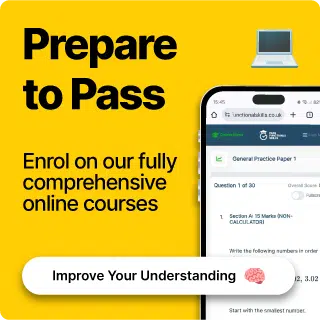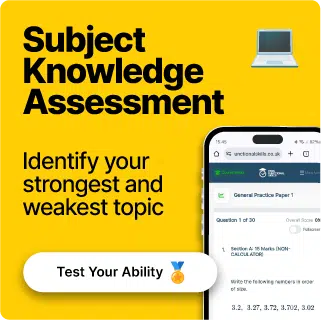SLC: Responding
Responding
You will need to know how to respond in a thoughtful, detailed and relevant way to questions.
You should also know how to expand and go into more detail when prompted.
Make sure you are happy with the following topics before continuing:


Responding
Make sure that you remain polite (say ‘please‘, ‘thank you‘ etc.)
When you are asked a question, think about what you have already said, and then think about what could be relevant to the question.
Look out for key words in the question to help guide your response.
Does the question ask for a fact or an opinion?
For example:
‘To what extent do you agree with the government’s decision?’
is asking for your own thoughts and opinion on the matter.
However, the question:
‘What did the government decide to do?’
is asking for facts and the specific details.
Question Words
What each main question word is asking for:
Where – a location
- Q: Where did you go on holiday?
- A: Barbados.
How – a method
- Q: How did you travel to work today?
- A: I took the train.


Why – a reason
- Q: Why did you go to the shops?
- A: I needed to buy some eggs.
Who – a person/organisation
- Q: Who painted this picture?
- A: The man with the paintbrush did.
What – all of the above!
Location:
- Q: What is the address?
- A: 10 Downing Street.
Method:
- Q: What is the quickest way to the station?
- A: Turn right, then left at the next junction.
Reason:
- Q: What was your thought process behind that?
- A: I thought it was the most efficient way.
Person/Organisation:
- Q: What brand of shoes are you wearing?
- A: Nike.
Follow Our Socials
Our Facebook page can put you in touch with other students of your course for revision and community support. Alternatively, you can find us on Instagram or TikTok where we're always sharing revision tips for all our courses.
Note:
Remember your answers to questions should be much more detailed than these examples!
Think about what relevant information will answer the question fully and provide evidence.
Examples: Opinion
‘Think‘, ‘feel‘, ‘agree‘, ‘disagree‘, and question marks.
All of these are key indicators of opinion.
There are many phrases which will help you to identify if you are being asked for your opinion.
Here are a few main ones that you should look out for…
- ‘Why do you think…’
- ‘What are your thoughts on…’
- ‘What do you prefer ‘
- ‘Is it acceptable to…’
Examples: Fact
‘Found‘, ‘shows‘, ‘know‘, ‘causes‘, and quotation marks.
All of these are key indicators of fact.
There are many phrases which will help you to identify if you are being asked for a fact.
Here are a few main ones that you should look out for…
- ‘How many…’
- ‘When did this…’
- ‘What evidence…’
- ‘Please could you explain…’
Specification Points Covered
EL3.4 – Respond appropriately to questions on a range of straightforward topics
L1.3 – Respond effectively to detailed questions
L1.4 – Communicate information, ideas and opinions clearly and accurately on a range of topics
L1.5 – Express opinions and arguments and support them with evidence
L1.7 – Use appropriate phrases, registers and adapt contributions to take account of audience, purpose and medium
L1.8 – Respect the turn-taking rights of others during discussions, using appropriate language for interjection
L2.3 – Respond effectively to detailed or extended questions and feedback,
L2.8 – Make relevant and constructive contributions to move discussion forward
L2.9 – Adapt contributions to discussions to suit audience, purpose and medium
L2.10 – Interject and redirect discussion using appropriate language and register
Revision Products
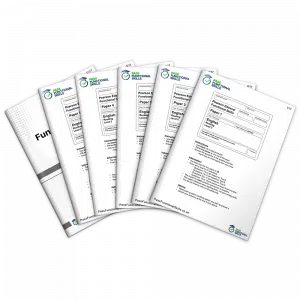
Functional Skills English Level 2 Practice Papers
This comprehensive set of 10 Functional Skills English Level 2 Practice Papers (5 reading papers + 5 writing) is a great way to revise for your upcoming reading and writing exams. These papers have been specifically tailored to match the structure, format and question types used by each of the main exam boards for functional skills English.
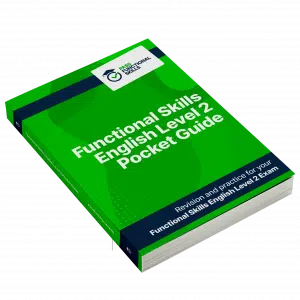
Functional Skills English Level 2 Book
Revise and practice for your functional skills English level 2 exam. All topics covered in this compact functional skills English level 2 book.
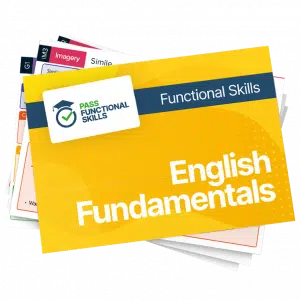
Functional Skills English Level 2 Revision Cards
Revise for functional skills English level 2, with these English level 2 fundamentals revision cards. Covering the building blocks of the essential areas of the level 2 exam.

